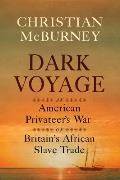Black New Englanders Rescued from Out-of-State Enslavement
However, with most of the U.S. of A. and all of the territories around the Caribbean still gobbling up enslaved labor, there was a terrible ongoing market for people of African heritage who couldn’t prove they were free.
This month brought two online articles about black New Englanders being dragged away from their homes in the first years after independence, and how the new state governments responded.
At Small State, Big History, Christian McBurney discusses a dispute that began in early 1779 when John Rice came from North Carolina to Rhode Island and bought an enslaved woman named Abigail and three of her children. Rice then hired local farmer Lodowick Stanton to drive his new human property in a wagon to Connecticut. Apparently Abigail communicated her fears to Stanton before the caravan stopped at his house. McBurney writes:
The next morning Rice awoke and was informed that Abigail and her daughters were nowhere to be found. Stanton was not a good liar. At first he said that they had all gone to Block Island. Then he blamed [neighbor] John Cross for their disappearance.The Rhode Island legislature ultimately sided with Abigail. It passed a law that took no property from Rhode Island slaveholders but barred the sale of people out of state without their consent (unless a court held the enslaved person had “become notoriously unfaithful and villainous”). That slavery-limiting law has received little attention, overshadowed by the gradual emancipation law that Rhode Island enacted five years later. As for Abigail and her children, they evidently remained in the state, but their individual fates can’t be tracked.
In a petition Rice later submitted to the General Assembly, he stated: “In making enquiry for his Negroes, [he] has great reasons to believe that a number of people had combined against him to deprive him of his property.” In addition, Rice wrote that he “was informed his person was in danger if he . . . pursued after” Abigail and her children. Stanton and likely John Cross, among others, kept Abigail and her children hidden at their own expense for several weeks.
McBurney’s next book is Dark Voyage: An American Privateer’s War on Britain’s African Slave Trade, about the wartime cruise of the Marlborough to attack British shipping along the African coast.
At the Massachusetts Historical Society’s Beehive blog, Benjamin D. Remillard shared “What then are our Lives and Lebeties worth”: The 18th Century Kidnapping Case that Shook Boston”:
Cato Newell…was a twenty-three-year-old baker from Charlestown, MA, when he enlisted alongside the rebels after the violence at Lexington and Concord. Boston’s Wenham Carey was a bit older by comparison, enlisting multiple times for short periods when he was already in his thirties. Luke (or Luck) Russell, meanwhile, while not a veteran, is believed to have been a member of Prince Hall’s growing African Freemason Lodge.The three men’s families, Hall, local Quakers, and others raised an outcry about this abduction. The Massachusetts establishment, led by Gov. John Hancock, responded with a new law and diplomatic correspondence. The situation was resolved happily by July 1788.
Life after the war, however, did not come without risks. Newell, Carey, and Russell discovered this for themselves when they were hired by a man named Avery to make boat repairs in February 1788. They travelled to Boston Harbor’s Long Island, where their employer directed the trio below deck to begin their work. After locking away his human cargo, the ship’s captain set sail for warmer waters.
It was not long before word of the abduction reached the men’s families. Writing from Charlestown, they decried the capture of those “three unhappy Africans,” and insisted that their loved ones were “justly intitled” to “the protection of the laws and government which they have contributed to support.”


